Staying connected to trains helps me stay connected to my father and the good times we shared around the tracks.
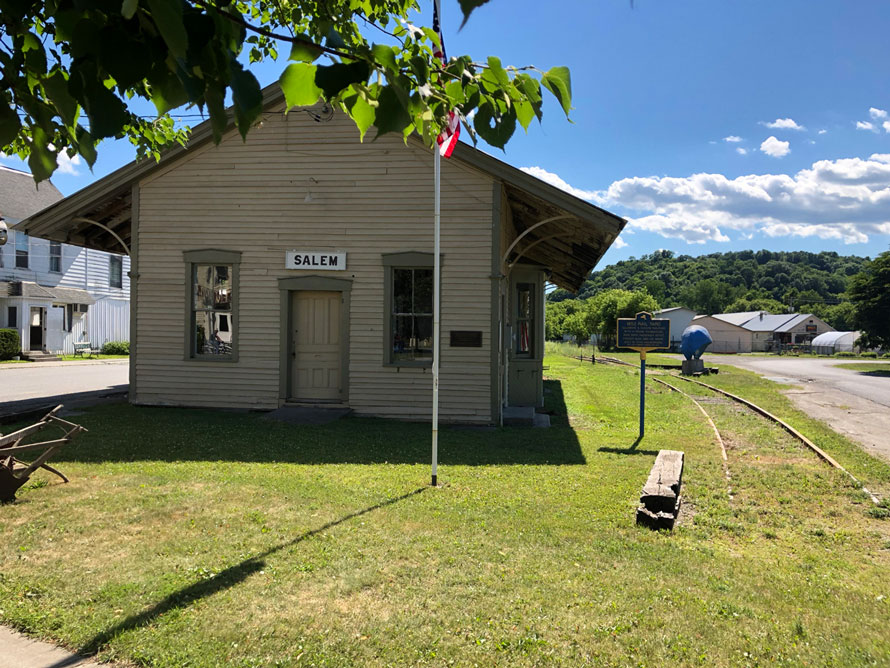
Salem, New York, has always been a special place for me, and the former Delaware & Hudson Washington Branch that ran through here played a big role in that.
Railroading was a major industry in the town going back to the mid 1800s. A roundhouse and large repair facility were once located off to the right of the tracks near the white buildings. Now an historical marker tells part of the story of this sleepy spot where the old depot sits. Jim Shaughnessy goes into fascinating detail in his book Delaware and Hudson, which I recommend highly.
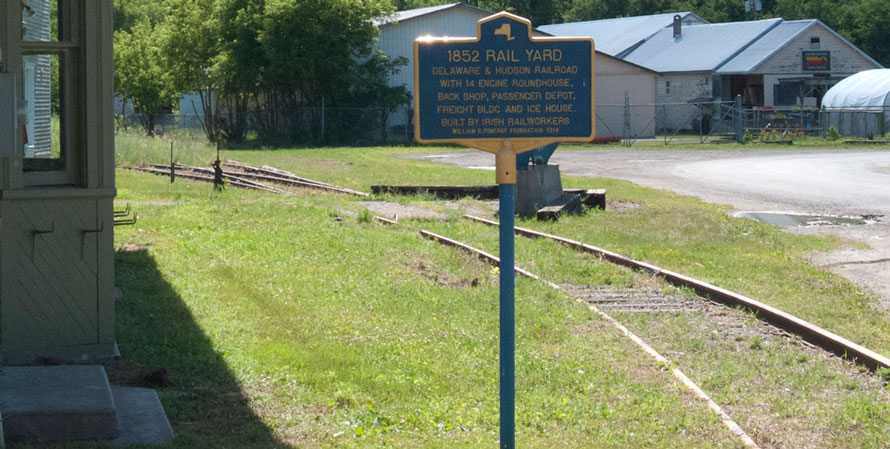
Although we lived near New York City, my family has deep roots in the Salem area, which is about two hundred miles north of the City. My great grandfather, Michael Keshin, owned a lumber mill in West Rupert, Vermont, just over the border from Salem. He used to ship the wood by train down to the City, where he owned a lumber yard. While he stayed in Vermont year round, his family lived much of the year in the City, and would come up by train to Vermont in late spring, spend the summer and early fall in Vermont, and then take the train back to New York City for the school year.
If you’re wondering how a New York City businessman ended up in a town with more cows than people, here’s the story that has been handed down over the years: Apparently Michael wanted to take a train to Virginia to buy some land, and headed to Grand Central Station. He’d had a bit too much to drink, and when he said he wanted a ticket to “V-v-vir…” the ticket agent asked “Vermont?” and he said yes. He ended up getting off the train at West Rupert, and the rest is history.
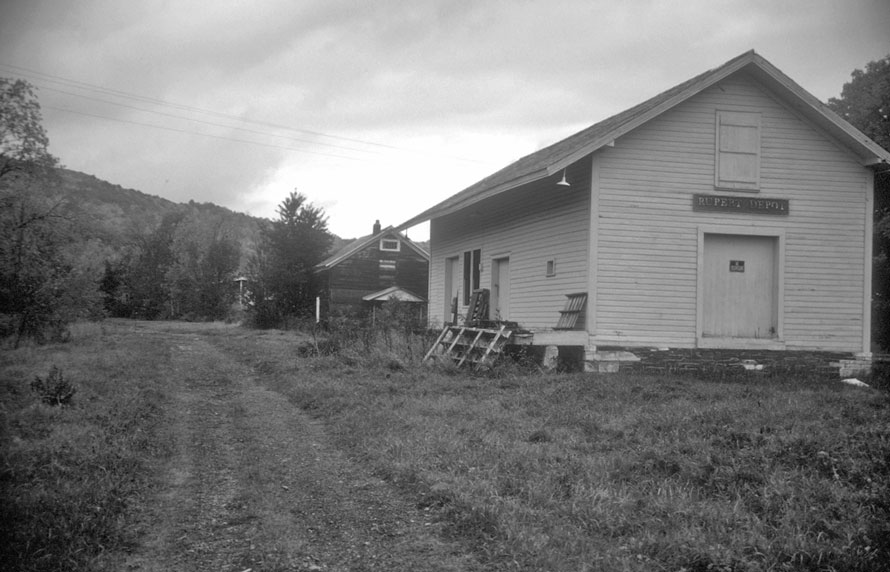
Not sure how true the story is, but we like to think that’s how it happened.
The Washington Branch, which ran from Castleton, Vermont, to Eagle Bridge, New York, has been part of my life for as long as I can remember. Long after the lumber mill closed, and passenger service ended, we would drive up to West Rupert for vacations in the summer, and railfanning was always part of the activity. My father was a railfan—prototypes and modeling—and I remember him taking my brother and me down to this spot in Salem, where we’d wait for a freight to come through. This was about 1960 or so, when there were still a few trains each way coming through town every day. We’d put a penny on the tracks (before I learned it was unsafe to do that), and be thrilled each time the train flattened it out. Since we were next to a grade crossing, there were plenty of Alco horns blowing, and the engineer would wave as he went by. The conductor in the caboose would also wave from the back platform.
My most vivid memory is of a day when the train stopped at the depot. At the time there were a few sidings, remnants of Salem’s busier history but still in use for a couple of local businesses. The Alco began switching out some cars, and my father, brother and I were standing near the caboose. My father decided to walk over, and climbed into the car. He came out a few minutes later with the conductor, who waved us over. We climbed up into the caboose and got a little tour of things. I remember a table, and a wood stove. We were standing there talking when the car suddenly shook as the engine backed into the train to reconnect and get ready to leave. I almost fell over, but grabbed on to the table. The conductor said we had to leave because the train was getting ready to go, so we went down the stairs, and about 10 seconds later the horn blew twice and the train pulled out.
That experience helped to ingrain a love of trains in me that has lasted until this day. It soon became more significant to me, when my father died not long after, at age 38. Staying connected to trains helps me stay connected to him and the good times we shared around the tracks.
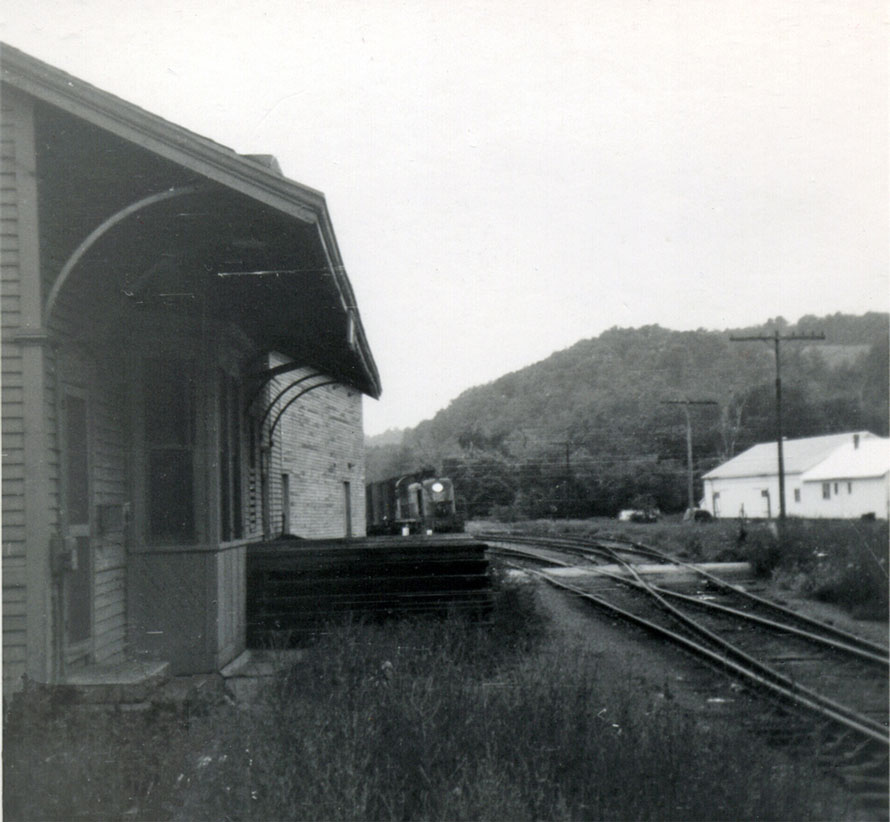
The line gradually saw less and less traffic. The famous D&H Baldwin RF16s (Sharks) ran there in the 1970s, although I was away at college during those years and never got to see them in person. The railroad abandoned the line in the 1980s. Much of the land north of Salem is now a rail trail operated by the state of Vermont. The line from Salem to Eagle Bridge is operated by the Batten Kill Railroad (BKRR) to service a couple of businesses. At Eagle Bridge the line interchanges with Pan Am Southern’s Patriot Corridor. I occasionally spend a little time there, and once in a while get lucky enough to see one of the BKRR Alcos in action.
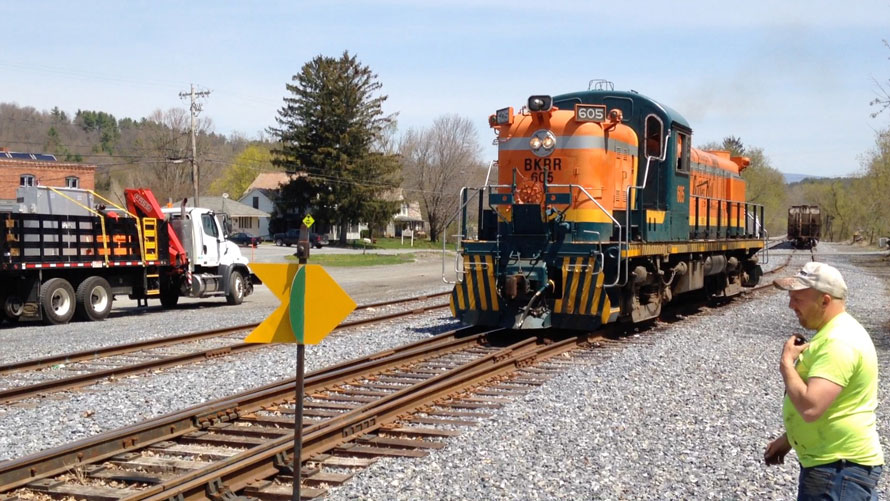
Batten Kill Railroad ran a tourist train called the Batten Kill Rambler from the Salem Depot to Shushan for a number of years, but it no longer runs.
These days, by reflex, when I drive past the track in Salem, I still look left to see if a train is coming. I like to think my father is watching and smiling.
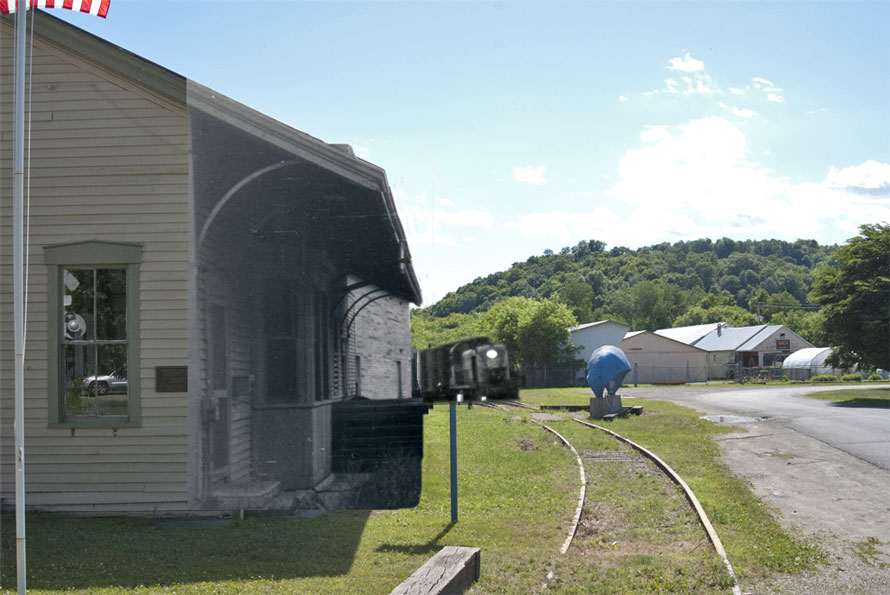
Dan Kittay – Text and photographs Copyright 2018
Great story, I was up there 2 years ago pretty close by they have a switcher at a siding I assume it’s to switch that company when they get cars. Like yourself Railroad keeps me in touch with my dad also as we spent much time there together.
Thanks John. Yes, they do keep a switcher parked nearby. I bet there’s a lot of people who stay interested in trains for that reason.
Do you know the year of the fire that destroyed the roundhouse in Salem NY? An ancestor of mine had a meat business in town, but lost it when the fire caused so many RR employees to leave town.